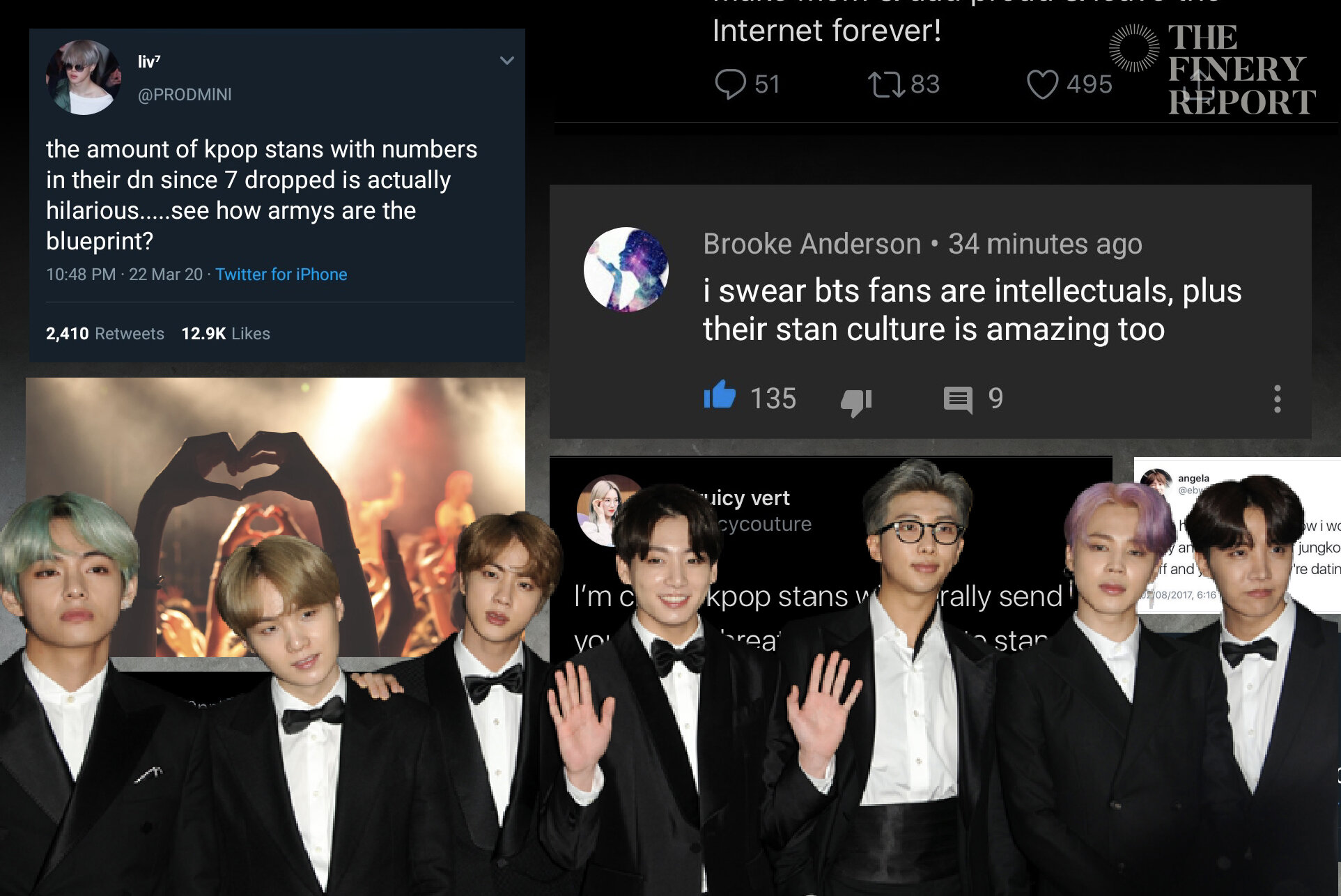The origin of stan culture
Read in Indonesian
Image: Shutterstock
A stan (noun) is defined as ‘an extremely or excessively enthusiastic and devoted fan,’ while stan as a verb means ‘to exhibit fandom to an extreme or excessive degree: to be an extremely devoted and enthusiastic fan of someone or something,’ according to the Merriam-Webster Dictionary.
The word arguably originated from a song by rapper Eminem released in 2000 titled ‘Stan,’ which tells the story of a fan, a young man named Stan, who exhibited an unhealthy and dangerous obsession towards the rapper.
Some also argue that the word stan comes from combining the words ‘stalker’ and ‘fan,’ which soon became synonymous with fandom culture from early on. However, the first recorded mentions of stan behaviour was when Hungarian pianist and composer from the 19th century, Franz Liszt, gained heavy and rapid exposure, creating Lisztomania or Liszt fever.
Hip hop artist Nas had also brought the term up in his song ‘Ether’ that was released in 2001. Since then, the word started to spread especially amongst online dwellers; forums, fan clubs and media soon adopted the word and slowly making it synonymous with fandoms.
The use of the word ‘stan’ had and still has a negative connotation since the term is mostly used to describe fans who are deemed to be obsessive, protective, aggressive and just overzealous towards the people and/or things they love. This negativity mostly came from social media platforms, such as Twitter and Tumblr.
With the growing number of stans and the development of technology, especially social media, ‘stan culture’ is born. Stans aren’t just people who collectively admire one thing, but instead they are an organised movement. Stans often, and mostly, take on the role of organiser, detective, promoter, protector, consumer, as well as an investor for their faves.
But how does one become a stan? When asked why they decided to become a stan for K-pop, one young stan who goes by the nickname ‘Linh’ cited the interesting choreography that was rarely done by other international artists as the reason.
Another fan who goes by the initial ‘G’ said that what makes her a BTS’s stan is because the genuine love she feels comes from the group which she never felt from any other artist towards their fans.
Image: Supernatural from the CW
One stan of the popular TV show Supernatural, who goes by the name Elmo, even went as far as travelling all the way to Europe from Indonesia to attend a con to meet her favourite actors as well as participating in fan-driven activities.
Stans will stream, buy and promote music and albums released by artists in an organised manner so that those songs and albums will chart higher and do better in sales.
For example, in April 2019, the hashtags #7YearsWithEXO, #7ogetherWithEXO and #EXO7thAnniversary, made to celebrate EXO’s 7th anniversary, claimed three of the top seven spots on the worldwide trending tag list.
Stans also follow their faves’ social media account, regularly liking and commenting on their posts, as well as creating fanart, memes, or stories about their faves and sharing inside jokes with fellow stans and/or their faves. K-Pop stans, for example, usually create ‘fancams’ or short, edited, video compilations of their idols and share them, oftentimes under tweets or posts completely unrelated to their faves whatsoever, in order to promote their faves.
In addition, they also regularly post or tweet to raise awareness of their faves’ activities. Lately, these activities have expanded to involve charities and social issues, urging people to donate and join charities and support a cause. They are especially good in creating popular hashtags, trends, threads and even discourse about their faves.
‘ARMY,’ the fan base of South Korean boy group BTS, managed to raise $1 million for the Black Lives Matter movement in just 25 hours.
However, there are negative perceptions associated with being a stan, which originated from ‘fanwars’ and a stan’s overprotectiveness over their idols. These happen when stans start arguing with stans of different artists who are either perceived as rivals, have somehow offended them, or have been proven (or in some cases, ‘believed’) to be problematic in general. Fanwars also occur when stans are trying to defend their faves during a controversy or scandal involving their faves.
The negative connotation of the word stan, although often deemed unfair, was not unfounded. Over the years, stans’ influence and power have been increasing significantly, partly due to the support from their faves, even when their stans behave morbidly and start attacking people left and right.
For example, Game of Thrones fans were rather upset with how season eight of the show progressed. They went as far as to start a petition to remake season eight “with competent writers,” which received over 1.7 million signatures.
Stans, when defending their faves, will sometimes regress to being insensitive bullies, and their criticisms morphed into death threats.
Huffington Post wrote that Toronto freelance writer Wanna Thompson, who often writes about hip-hop, discovered this over the summer when she wrote a tweet that was mildly critical of Nicki Minaj's music. The responses from the rapper's fans weren't musical or cultural comments; they weren't well-reasoned arguments. They were straight-up insults and harassment directed to her not just on Twitter but also on Facebook, on Instagram, by email, and to her personal email. Some included photos of her four-year-old daughter. Others told her to kill herself. The rapper herself even joined in.
Star Wars stans, which could be seen as one of the biggest movie franchise stans, post and flooded Kelly Marie Tran with so much hate. They post racist and abusive comments, prompting her to leave social media for good after enduring months of harassment.
However, not all stans share the same stan culture mindset. ‘G’ finds the idea of toxic stans repulsive. “I believe it’s okay to dislike or disagree with something, but toxicity and bullying is just unnecessary.”











